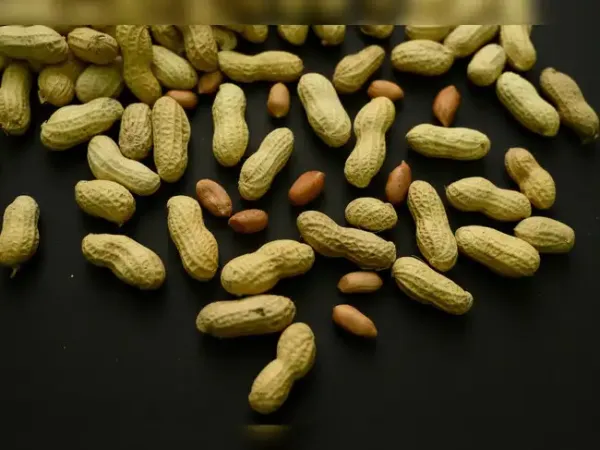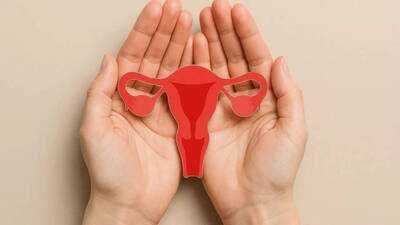A new study led by a Philadelphia doctor suggests that introducing peanuts early in a baby’s diet could significantly reduce the risk of life-threatening allergies later in life. The research found that babies who were given peanut-based foods within their first year had a more than 40% lower chance of developing allergies compared to those who avoided peanuts.
CLICK HERE TO CHECK YOUR BMI
Since the 2015 guidelines overturned previous medical advice by recommending peanut introduction to infants as early as 4 months, an estimated 60,000 children have avoided developing peanut allergies.
"That’s a remarkable thing, right?" said Dr. David Hill, an allergist and researcher at Children’s Hospital of Philadelphia, and author of a study published Monday in the medical journal Pediatrics. According to the Associated Press (AP), Hill and his team reviewed electronic health records from numerous pediatric clinics to examine food allergy diagnoses in young children before, during, and after the introduction of the new guidelines.
"I can actually come to you today and say there are less kids with food allergy today than there would have been if we hadn't implemented this public health effort," he further told AP.
Researchers found that peanut allergies in children aged 0 to 3 dropped by over 27% after 2015 guidelines encouraged early introduction for high-risk infants, and by more than 40% after the 2017 expansion. However, overall food allergy rates continue to rise, affecting about 8% of US children, including over 2% with peanut allergies.
Peanut allergies occur when the immune system mistakenly identifies peanut proteins as harmful, causing reactions that can include hives, breathing difficulties, or life-threatening anaphylaxis. For decades, doctors advised avoiding peanuts until age 3, but the 2015 LEAP trial by King’s College London’s Gideon Lack showed introducing peanuts in infancy cut allergy risk by over 80%, with lasting protection in most children.
Despite strong evidence, adoption has been slow - only 29% of pediatricians and 65% of allergists follow the updated guidance. Experts, including Dr. Ruchi Gupta of Northwestern University, says confusion and caution among parents and doctors contributed to delays, reported AP. Still, researchers believe the findings offer promising evidence that early peanut introduction is gaining acceptance and beginning to reduce allergy rates nationwide.
Advocates for the 33 million Americans living with food allergies welcomed evidence that early peanut introduction is gradually becoming more common.
"This research reinforces what we already know and underscores a meaningful opportunity to reduce the incidence and prevalence of peanut allergy nationwide," Sung Poblete, chief executive of the nonprofit group Food Allergy Research & Education (FARE), was quoted as saying by AP.
Hill noted that the new study reinforces the 2021 guidelines, which recommend introducing peanuts and other common food allergens between four and six months of age without prior testing or screening. Parents are advised to discuss any concerns with their pediatricians.
"It doesn’t have to be a lot of the food, but little tastes of peanut butter, milk-based yogurt, soy-based yogurts and tree butters," he said. "These are really good ways to allow the immune system exposure to these allergenic foods in a safe way."
Disclaimer: The article is for general information or educational purposes only, and is not a medical advice. Please consult your doctor as this is not a substitute for professional help.
CLICK HERE TO CHECK YOUR BMI
Since the 2015 guidelines overturned previous medical advice by recommending peanut introduction to infants as early as 4 months, an estimated 60,000 children have avoided developing peanut allergies.
"That’s a remarkable thing, right?" said Dr. David Hill, an allergist and researcher at Children’s Hospital of Philadelphia, and author of a study published Monday in the medical journal Pediatrics. According to the Associated Press (AP), Hill and his team reviewed electronic health records from numerous pediatric clinics to examine food allergy diagnoses in young children before, during, and after the introduction of the new guidelines.
"I can actually come to you today and say there are less kids with food allergy today than there would have been if we hadn't implemented this public health effort," he further told AP.
Researchers found that peanut allergies in children aged 0 to 3 dropped by over 27% after 2015 guidelines encouraged early introduction for high-risk infants, and by more than 40% after the 2017 expansion. However, overall food allergy rates continue to rise, affecting about 8% of US children, including over 2% with peanut allergies.
Peanut allergies occur when the immune system mistakenly identifies peanut proteins as harmful, causing reactions that can include hives, breathing difficulties, or life-threatening anaphylaxis. For decades, doctors advised avoiding peanuts until age 3, but the 2015 LEAP trial by King’s College London’s Gideon Lack showed introducing peanuts in infancy cut allergy risk by over 80%, with lasting protection in most children.
Despite strong evidence, adoption has been slow - only 29% of pediatricians and 65% of allergists follow the updated guidance. Experts, including Dr. Ruchi Gupta of Northwestern University, says confusion and caution among parents and doctors contributed to delays, reported AP. Still, researchers believe the findings offer promising evidence that early peanut introduction is gaining acceptance and beginning to reduce allergy rates nationwide.
Advocates for the 33 million Americans living with food allergies welcomed evidence that early peanut introduction is gradually becoming more common.
"This research reinforces what we already know and underscores a meaningful opportunity to reduce the incidence and prevalence of peanut allergy nationwide," Sung Poblete, chief executive of the nonprofit group Food Allergy Research & Education (FARE), was quoted as saying by AP.
Hill noted that the new study reinforces the 2021 guidelines, which recommend introducing peanuts and other common food allergens between four and six months of age without prior testing or screening. Parents are advised to discuss any concerns with their pediatricians.
"It doesn’t have to be a lot of the food, but little tastes of peanut butter, milk-based yogurt, soy-based yogurts and tree butters," he said. "These are really good ways to allow the immune system exposure to these allergenic foods in a safe way."
Disclaimer: The article is for general information or educational purposes only, and is not a medical advice. Please consult your doctor as this is not a substitute for professional help.





